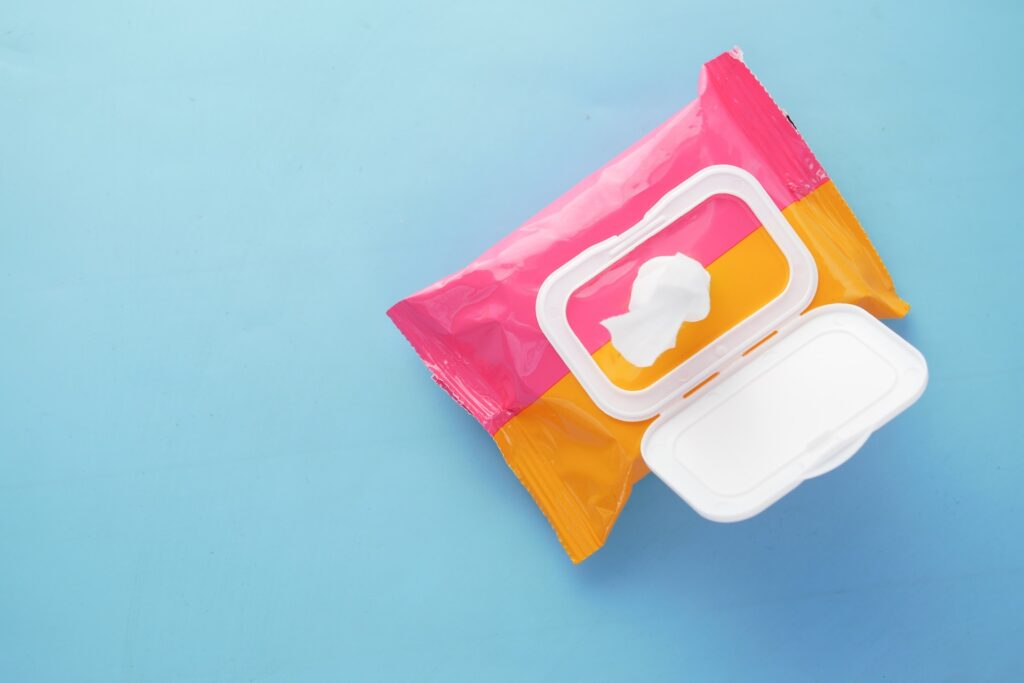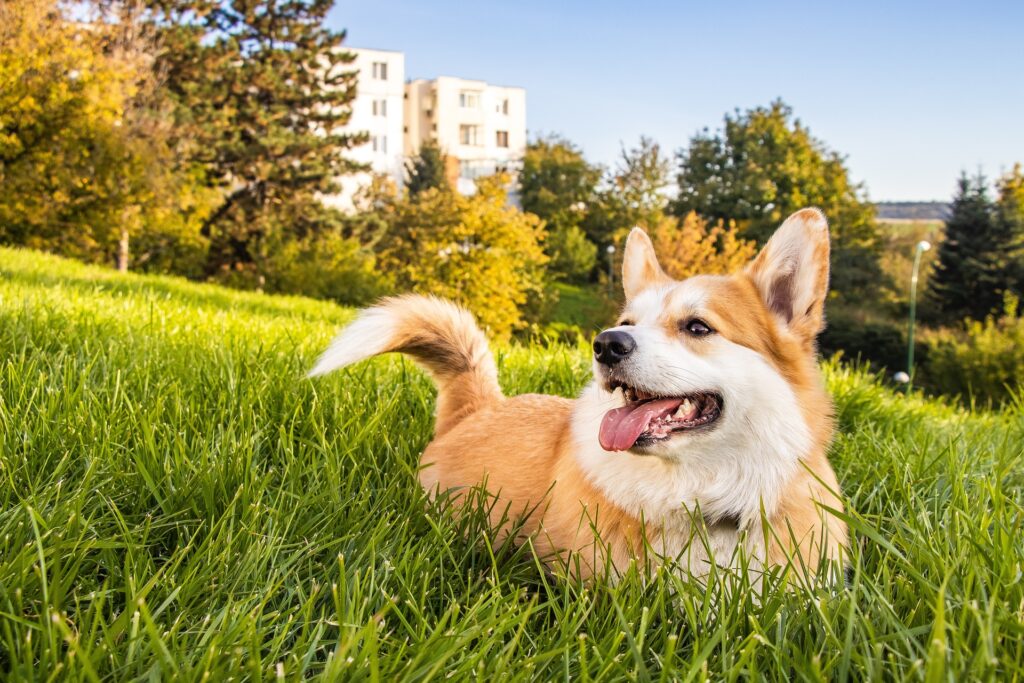Dogs like to pick up things with their mouths as they are avid chewers. Sometimes they will chew on something that can cause them problems. But what will happen if your dog ate chalk?
When a dog ingests chalk, it can lead to gastrointestinal upset. The composition of the chalk and its quantity can determine the severity of symptoms. In this situation, it’s important to monitor the dog and contact a veterinarian for guidance. But you should know a few other things first.
- What is the composition of chalk?
- Is chalk toxic to dogs?
- What are the common signs and symptoms of chalk ingestion in dogs?
- What immediate actions should dog owners take if their dog ingests chalk?
- How to prevent dogs from eating chalk?
- What are the potential treatment options and medical interventions for dogs that have consumed chalk?
What is the composition of chalk?
The main ingredient chalk is made of is calcium carbonate. This ingredient is derived from rocks and shells. There are some chalks that also include calcium sulfate, or gypsum, an ingredient used in construction.
Some chalks also include talc, an ingredient commonly used in medicine and makeup. Colored chalk includes pigments that give the specific color of the chalk. Some chalk will also have preservatives as part of their ingredient list, making them last longer.
Is chalk toxic to dogs?
The toxicity of chalk will mostly depend on the ingredients it contains. Calcium carbonate is not toxic to dogs in small amounts. Gypsum is non-toxic to dogs but it can cause some digestive irritation. Talc is also an irritant but is can also have carcinogenic properties if includes asbestos in its ingredients list. The FDA says this about the carcinogenic effects of talc:
| Both talc and asbestos are naturally occurring minerals that may be found in close proximity in the earth. Unlike talc, however, asbestos is a known carcinogen when inhaled. There is the potential for contamination of talc with asbestos and therefore, it is important to select talc mining sites carefully and take steps to test the ore sufficiently. |
The known chalk additives can also cause unwanted effects on dogs. The type of chalk will also influence its toxicity. For example, sidewalk chalk can pick up bacteria and bird poop that are harmful to dogs. Gym chalks contain sweat and bacteria can also cause problems.
What are the common signs and symptoms of chalk ingestion in dogs?
Once your dog starts eating chalk, there are a few types of symptoms that you should notice and keep an eye on.
Digestive issues
Once chalk is ingested, it will irritate the bowels and cause symptoms like vomiting and diarrhea. If your dog has diarrhea at night, it might have eaten chalk in the evening. Abdominal discomfort and even pain can accompany them. The chalk will also affect the look of the poop.
Intestinal blockage
If larger pieces of chalk are ingested, they can get stuck in your dog’s intestines and cause a blockage. This is a serious condition that shows signs of abdominal discomfort and intense abdominal pain. The dog will also become lethargic, bloated, and lose its appetite while experiencing organ damage.
Choking hazard
Besides the intestines, chalk can also get stuck in the windpipe and cause the dog to choke. These dogs will become unable to breathe, and start panicking and pawing at their mouths. The respiratory system can also get irritated from chalk dust and cause sneezing and coughing.
What immediate actions should dog owners take if their dog ingests chalk?
The first thing you should do if your dog keeps eating chalk is to remove the chalk from its vicinity. Then you can move on to the other steps.
Assess the situation
Observe and pick up as much information about the situation as possible. This will be needed for your vet consultation. See how much chalk the dog ingested, what type of chalk it was, and notice any symptoms that are instantly visible. Also, you can give some water to the dog to calm it down.
Check for signs of choking
If your dog is choking, you will immediately see it panic while losing its breath. In this situation, you must react instantly and try to perform the Heimlich maneuver. This is done by essentially pushing on the abdomen of the dog a few times with a measured force meant to create enough pressure to get the chalk out.
Contact a veterinarian for professional advice
You should inform your vet about your dog swallowing chalk, and wait for further instructions. Tell them all the information you have and if possible you will also need to bring the dog there. Sometimes, vets will prescribe activated charcoal as a way to bind to the toxins and get them out of the body easily. “Activated charcoal is most efficacious when given within one hour of ingestion of the toxin.”, says Jason Silberman et al. in their study.
How to prevent dogs from eating chalk?
There are a few steps a responsible dog owner can take to prevent their dog from eating inedible objects like chalk.
Keep chalk out of reach
Your dog won’t be able to eat chalk if you keep it out of its vicinity. If you use chalk on the regular, make sure to keep it in a closed container if it’s out of use.
While you restrict its reach to the places that contain chalk, make sure to let it roam in some safer place so it can still feel free.
Training your dog
You should use obedience training to train your dog to listen to you and not go after eating everything they see. Yes, some dog breeds like Bulldogs can be stubborn, but all dogs can be trained with some persistence.
You should always use positive reinforcement techniques when training your dog. Simple things like praise and a few treats can do wonders. If you can’t train your dog, you can always hire a professional dog trainer or animal behaviorist.
Buy dog-friendly chew toys
Chew toys can be of great help when dealing with dogs like Labradors that like to chew a lot. You can use them to easily redirect your dog’s attention while also preventing boredom. Make sure you use chew toys that are of high quality and don’t easily break down.
There are some dog-safe alternatives to chalk if you want to color your dog’s fur with chalk as well.
Responsible supervision
Even if your dog is well-trained and responsible, it will still remain curious about new stuff it encounters on the street. While walking, supervise your dog and make sure it doesn’t pick up anything laying on the ground, like chalk for example.
For some dogs, using an anti-chew spray or bitter-tasting deterrent on inedible objects can do wonders in the prevention of ingestion.
What are the potential treatment options and medical interventions for dogs that have consumed chalk?
When you bring your furry friend to the emergency veterinary care, they possess the necessary expertise to provide proper care and minimize any potential issues that may arise. Your vet will administer some intravenous fluids to fix any electrolyte imbalances and dehydration. In some situations, surgical intervention may be needed to remove a blockage.
After the surgery, the dog will need to be hospitalized, supervised, and receive supportive care for a few days. Then, you will be able to take it home and continue with all the directions your vet gives you.
So what should you do if your dog ate chalk?
Dogs are curious by nature and at some point will end up ingesting something inedible like chalk. The chalk itself is not super toxic as its main ingredients are not toxic to dogs in small amounts. However, chalk can still get stuck along the intestinal or breathing tract and cause life-threatening problems.
If you have seen that your dog has ingested some chalk, you need to remain calm and try to notice any signs of disease. Then, contacting a vet is the next step as they have all the knowledge and expirience to prevent the worsening of the situation.
FAQ
How to clean your dog’s mouth after eating chalk?
If your dog has chalk residue in their mouth, you can use a damp cloth or pet-safe mouthwash to gently clean their mouth. Avoid using harsh chemicals or substances that may be toxic to dogs.
Is chalk safe for a dog’s fur?
Having some chalk dust on the fur will not cause any problems for the dog. Also, there are certain chalks made for people that want to color their dogs in interesting colors.
Can dogs digest chalk?
If your dog ate chalk, it will partially be able to digest it, however, it can still get stuck along the intestines. If it passes through the digestive system, you will see pieces of it in the dog’s poop.
More dog health resources
Here are a few other resources talking about dog health.
- Pink spot on dogs lip
- Why do dog leave odorless wet spots
- Valerian root dosage for dogs
- How fast does pumpkin work for dog diarrhea
- Why are my dogs balls black
You can find a lot more information on the types of food you can feed your dog on our site Dogisa!
What To Do If Your Dog Ate A Baby Wipe: Advice And Solutions
Dogs like to chew on things and sometimes they will get their chompers on something…
Why do Dog Leave Odorless Wet Spots? And how to treat them
It is not uncommon for dog owners to notice that their dog leave odorless wet…
Why Does My Dog Only Have Diarrhea At Night? [How To Help]
Diarrhea is not an uncommon thing and most dogs will suffer from it at least…
A Complete Guide To The Corgi Heat Cycle [+ Tips]
Going into heat is what we refer to when we talk about periods in dogs….
Should I Feed My Dog Before Or After A Walk? [Simplified]
Of what we know of dogs, they love two things, eating and walking. These two…
Dog Ate Tampon – How Long Will It Take To Pass Easily?
Dogs are curious creatures by nature, and it’s no wonder that they scout for inedible…







